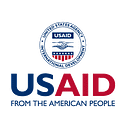UNESCO International Literacy Day— CATALYZE EduFinance DRC Phonics Training Builds a Strong Foundation
The low-cost private sector has undergone rapid expansion in the Democratic Republic of the Congo (DRC) thanks to factors such as population growth, increased enrollment, and parental aspirations for quality education. Opportunity International estimates that registered private schools in the country represent about 21% of the market, with much higher rates in Kinshasa, where two out of three schools are private. The USAID CATALYZE EduFinance DRC program — which aims to enhance access to quality education by training school leaders and teachers in affordable non-state schools — has been a key player in this development.
International Literacy Day (ILD) on September 8th provides the opportunity to reflect on these achievements as we celebrate the 2023 theme: promoting literacy for a world in transition and building the foundation for sustainable and peaceful societies.
To address the widening gap between educational policies and practical classroom instruction, CATALYZE EduFinance DRC has led phonics trainings — a widely used and proven method for building literacy skills among learners — through an interdisciplinary, mentor-based approach.
This training was a success in our eyes and was broadcast across the educational sphere […] we received many calls from other educational authorities to support this training in different areas in Kinshasa. — Eric Kabitshwa Yama, Senior Education Specialist
Read on to hear from Education Inspectors and teachers in the DRC, who share the impact that these trainings have had on building a strong educational foundation in the region.
Teacher Mentor Professional Development Phonics Workshops
Phonics serve as a foundational skill for reading by establishing the connection between letters and their corresponding sounds. Despite their significance for student reading proficiency, many teachers in the DRC report having never received phonics training before the CATALYZE EduFinance DRC Activity. Through Teacher Mentor Professional Development (TMPD) workshops, teachers have relished the opportunity to learn about phonics teaching and practice their skills in a supportive environment. “[These trainings] are in the interest of a better education for the children,” a DRC Partner School Leader reported. Phonics trainings are delivered in both conducted in French and Lingala, and each of the three sessions focuses on a best practice module designed to support teachers towards independently writing lesson plans.
DRC Inspector Training: A Galvanized Approach
Education Inspectors in the DRC have a dual role — assessing teachers and fostering their professional growth. However, the emphasis leans heavily on assessment, leaving teacher development sidelined. CATALYZE EduFinance DRC delivered a three-tiered three-day phonics training to Inspectors, designed to equip them with the skills to deliver effective reading lessons and promote teacher development.
The program’s innovative approach has been met with enthusiasm. “This training was a success in our eyes and was broadcast across the educational sphere […] we received many calls from other educational authorities to support this training in different areas in Kinshasa,” said Eric Kabitshwa Yama, Senior Education Specialist.
This initiative offers a pragmatic approach to leveraging strategies and materials, ensuring that educational directives are not just understood, but effectively translated into classroom success. Equipping a wide range of education professionals is critical in building a foundation for strong literacy skills.
On International Literacy Day and everyday, CATALYZE EduFinance DRC remains steadfast on bridging the divide between educational policies and practical classroom instruction, highlighting the role of well-prepared educators in shaping a promising educational landscape for the nation’s children and youth.
About CATALYZE EduFinance
CATALYZE EduFinance (September 2019–2027) uses a blended finance approach to test models that improve and sustain learning outcomes for children and youth globally, particularly those most vulnerable. CATALYZE pilots multiple models in 14 countries across Latin America and the Caribbean, Sub-Saharan Africa, the Middle East, and Asia regions, supporting local education stakeholders in state and non-state education in early childhood development and early childhood care and education; primary and secondary education; technical and vocational education and workforce development; and improving enabling environments. Pilot activities implemented by EduFinance are complemented by a global community of practice, the Education Finance Network.
This blog was made possible through support provided by the Bureau for Development, Democracy, and Innovation, Private Sector Engagement (PSE) Hub and Center for Education, U.S. Agency for International Development, under the terms of Contract №7200AA19-C00080. The opinions expressed herein are those of the author(s) and do not necessarily reflect the views of the U.S. Agency for International Development.
This blog was originally written by CATALYZE partner Opportunity International and has been lightly edited for length and clarity. Read the full version here.
